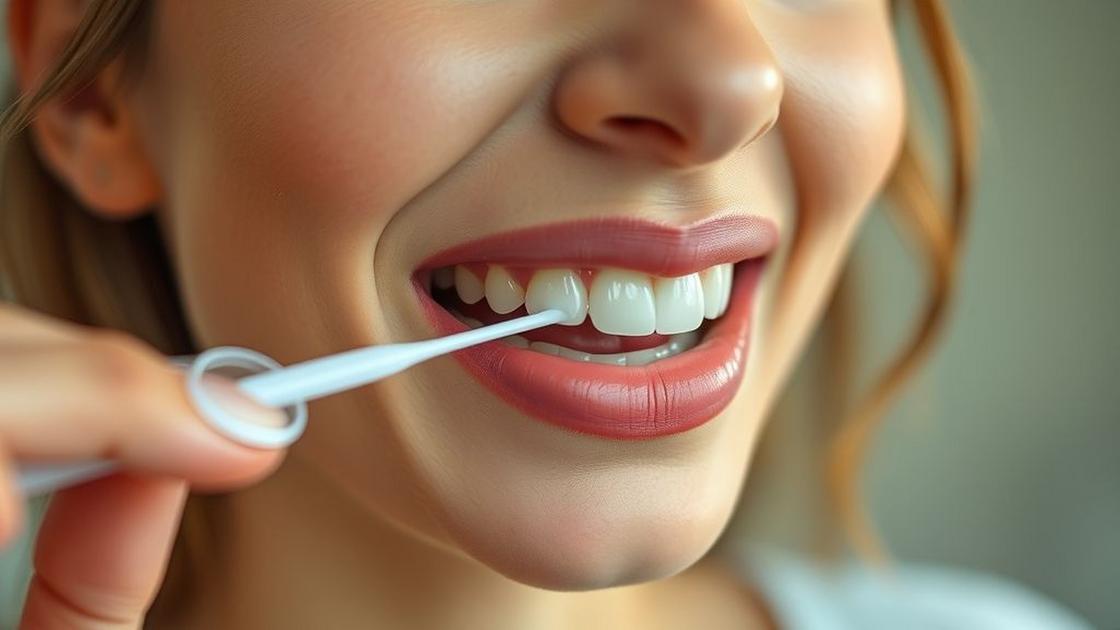Are you seeking ways to maintain a healthy smile at home? Many individuals struggle with oral hygiene routines. This article offers practical tips for effective dental care that fits into your busy lifestyle. From daily habits to fun ideas for family engagement, we’ll guide you on how to achieve that radiant smile.
Understanding the Importance of Oral Hygiene
Oral hygiene is essential for maintaining not just a beautiful smile, but also your overall health. Poor oral hygiene can lead to various dental problems, including cavities, gum disease, and bad breath. When you practice good oral hygiene, you reduce the risk of these issues and promote overall well-being.
Taking care of your teeth and gums is especially important for women over 30, as hormonal changes can affect oral health. When hormonal imbalance occurs, it can lead to increased sensitivity in gums, making it vital to prioritize daily oral care routine.
Additionally, maintaining a healthy smile helps boost your confidence. When you feel good about your teeth, you’re more inclined to smile, interact, and connect with others.
Daily Habits for a Healthier Smile
Establishing a daily routine can significantly impact your oral health. Here are some simple yet effective habits to adopt:
- Brush Twice a Day: Use a soft-bristled toothbrush and fluoride toothpaste. Make sure to brush for at least two minutes, covering all surfaces of your teeth.
- Floss Daily: Flossing helps remove food particles and plaque stuck between your teeth and gums. This area is often neglected and can lead to decay if not cleaned properly.
- Use Mouthwash: An antibacterial mouthwash can help reduce bacteria in your mouth, freshen your breath, and promote gum health.
- Stay Hydrated: Drinking plenty of water can help wash away food particles and bacteria, reducing your risk of cavities.
The Role of Diet in Dental Health
Your diet plays a significant role in maintaining a healthy smile. Foods rich in vitamins and minerals can strengthen your teeth and gums. Here are some dietary tips:
- Eat Crunchy Fruits and Vegetables: Foods like apples, carrots, and celery can naturally clean your teeth as you chew and stimulate your gums.
- Limit Sugary Foods: High sugar intake can lead to tooth decay. Try to minimize candies, sodas, and processed foods.
- Incorporate Dairy: Dairy products like milk, cheese, and yogurt provide calcium, which helps strengthen tooth enamel.
- Stay Away From Acidic Foods: Foods high in acid, such as citrus fruits and vinegar, can weaken tooth enamel. Enjoy them in moderation.
Natural Remedies for Oral Care
There are several natural remedies you can incorporate into your oral care routine:
- Baking Soda: Use baking soda to brush your teeth occasionally for its gentle abrasive properties. It can help remove stains and whiten teeth.
- Coconut Oil: Oil pulling with coconut oil can help reduce plaque buildup and promote gum health.
- Green Tea: Incorporating green tea into your diet has been linked to reduced cavities and gum disease due to its antioxidants.
- Saltwater Rinse: A saltwater rinse can soothe gums and help with inflammation or irritation.
Fun Ways to Encourage Kids to Brush
As mothers, inspiring your children to brush their teeth can feel like a daunting task. However, making it enjoyable can encourage good habits:
- Colorful Toothbrushes: Let your kids pick their favorite character or color toothbrush; this can make them excited about brushing.
- Fun Toothpaste: Choose flavored toothpaste that kids find appealing, making the experience more enjoyable.
- Toothbrushing Games: Turn brushing into a game by timing their brushing for two minutes or playing their favorite song.
- Incorporate Rewards: Create a chart with stickers for days when they brush twice a day, rewarding them after a certain number of stickers.
Signs You Need to Improve Your Oral Care
Be mindful of your oral condition. Here are signs that indicate it might be time to make some improvements:
- Bad Breath: Chronic bad breath, even after brushing, may indicate poor oral hygiene.
- Bleeding Gums: Gums that bleed when brushing or flossing could be a sign of gum disease.
- Tooth Sensitivity: If you experience pain or discomfort while eating hot or cold foods, it might be time to evaluate your oral health.
- Visible Plaque or Tartar: If you can see plaque or tartar buildup, it’s a sign your oral care routine needs enhancement.
Choosing the Right Dental Products
Picking the right products for your dental care routine can make a difference:
- Toothbrush: Choose a soft-bristled toothbrush which is gentle on your gums and effective for cleaning your teeth.
- Toothpaste: Opt for fluoride toothpaste as it helps to strengthen tooth enamel and prevent cavities.
- Floss: Consider waxed floss for easier gliding between teeth and to minimize gum irritation.
- Mouthwash: Look for alcohol-free mouthwashes that can effectively fight plaque and freshen breath without drying your mouth.
When to Visit the Dentist
Regular dental visits are crucial for maintaining oral health. Aim to visit your dentist every six months. However, you should make an appointment sooner if you experience any of the following:
- Persistent Pain: If you have tooth pain that doesn’t go away, it’s important to seek professional advice.
- Changes in Gums: If your gums have changed in color, become swollen, or bleed easily, it’s time to visit the dentist.
- Dental Issues: If you notice any cracks, chips, or loose teeth, don’t wait to consult your dentist.
- Dry Mouth: Chronic dry mouth can lead to cavity formation and should be discussed with your dental professional.
Overcoming Dental Anxiety
Many women experience dental anxiety, which can interfere with their oral health. Here are some tips to help overcome this fear:
- Communicate: Talk to your dentist about your fears. They can help guide you through the process and create a comfortable environment.
- Take Breaks: If you feel overwhelmed during a procedure, ask for a break to breathe and regain your composure.
- Bring a Friend: Having a supportive friend or family member accompany you can alleviate anxiety and provide comfort.
- Practice Relaxation Techniques: Techniques like deep breathing or visualization can help calm nerves before your appointment.
Embracing Your Smile with Confidence
Your smile is a vital aspect of your identity. Embracing it with confidence can change your whole demeanor. When you take care of your oral health, not only do you keep your teeth and gums healthy, but you also cultivate a sense of self-worth.
Remember, it’s never too late to improve your dental care routine and discover a stunning smile. As women over 30, let us support one another in embracing our smiles and sharing our experiences.
By following these simple tips and staying committed to your oral health journey, you too can unlock the power of a confident smile. You are not alone; many women have walked this path and found solutions that work for them. Discover the same possibilities and step into a world of bright, beautiful smiles!






